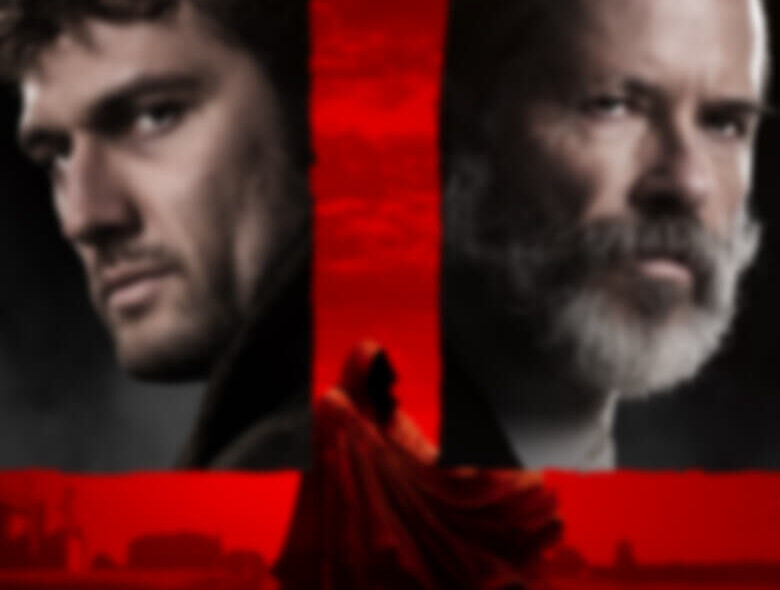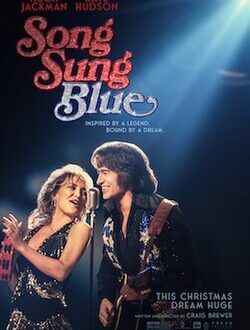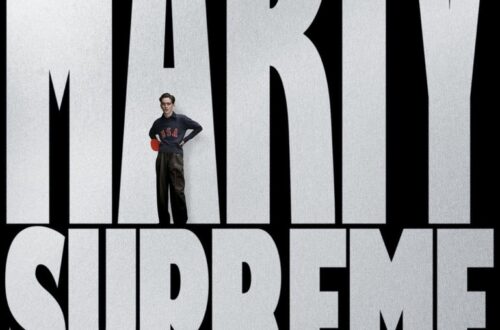Sunrise unfurls as a brooding, slow-burning horror drama set deep in the misty woods of the Pacific Northwest, where human cruelty and creeping supernatural dread converge unevenly. Director Andrew Baird and writer Ronan Blaney attempt to conjure a modern gothic fable, one in which a vampire-like drifter named Fallon returns to the scene of past violence, his presence stirring both fear and fragile hope. The film’s ambition—to thread together a family drama, a commentary on intolerance, and a mythic vampire tale—is apparent, but the execution reveals a fragile weave that struggles to hold its weight.
The story opens against an undercurrent of lore, introducing the ominous legend of the Red Coat, a forest-dwelling spirit—demon or vampire—believed to grant dark sustenance through blood and terror. Into this eerie backdrop steps Fallon, a wounded outsider who finds shelter with an immigrant family victimized by a brutal local power broker. As Fallon convalesces under their roof, we sense the pull between nurturance and menace, compassion and compulsion. The family’s uneasy hospitality unfolds amid mounting threats and whispered suspicions, yet the film often feels more like a mood board than an immersive narrative—beautiful in its gloom but lacking visceral grounding.
Central to the tension is Guy Pearce, who cuts through the haze as Reynolds, a demagogue with a warped sense of entitlement. Pearce wrings grim satisfaction from his role, embodying the kind of small-town tyrant who masks violence with performative rhetoric. He expands a single speech into a portrait of entitlement and rage, delivering a chilling embodiment of cultural decay. His presence often feels like the film’s anchor, a steady object around which the rest of the fog drifts.
On the other side is Alex Pettyfer, sluggish in movement but calculating in restraint, as Fallon. His performance hovers between shadow and anger, conveying enough quiet intensity to hold a fragile line of empathy, even as his character remains opaque. The immigrant family—the grieving, resolute mother and her children—suffer more than speak, their trauma evoking sympathy but not deeper connection. The scripting sets them up for a reckoning but undercuts that promise with a refusal to probe past surface-level dynamics.
For all its visual flair—the fog-thickened woods, the strain of sun through heavy canopy, the lingering close-ups—the atmosphere often overshadows the story. Moments that could have dug deeper into character or mythology skim instead, revealing a film that is all atmosphere and thin underbelly. Flashbacks that might have fleshed out Fallon’s transformation into predator or avenger arrive without impact, their repetition only emphasizing the narrative’s inability to cohere.
Thematically, Sunrise carries the weight of class conflict, racism, and vengeance—yet these threads feel teased rather than woven. The immigrant family’s story, touched upon in moments of hostility and fear, deserves depth and texture that the film never fully grants. With its divided focus—equal parts supernatural thriller and social allegory—the film lands somewhere in between, seldom strong in either realm.
Running just over ninety minutes, Sunrise seldom overstays its welcome, but the pacing glimpses unease rather than escalation. It’s the type of film that simmers rather than sparks—and yet the simmer rarely boils. In the austere quiet, the tension never fully deepens.
In the final count, Sunrise stands as a moody experiment that seeks to blend folklore and fear with commentary on modern malice. It’s rich in visual tone and anchored by a commanding central performance, yet remains haunted by what it doesn’t become. For those drawn more to atmosphere than exposition, Sunrise offers a dense, if incomplete, descent into myth and malaise.




